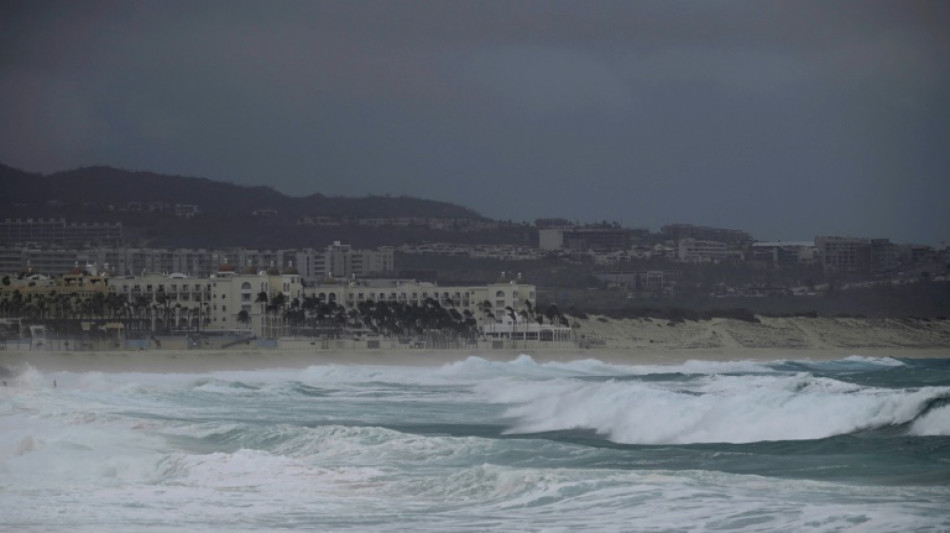Hurricane Hilary weakened to a tropical storm Sunday as it barreled up Mexico's Pacific coast, but was still likely to bring life-threatening flooding to the typically arid southwestern United States, forecasters said.
Authorities reported at least one fatality in northwestern Mexico, where Hilary lashed the Baja California Peninsula with heavy rain and strong winds.
At its peak, Hilary reached Category 4 on the five-step Saffir-Simpson scale, but was downgraded to a tropical storm as it headed towards southern California, the US National Hurricane Center (NHC) said.
Hilary was packing maximum sustained winds of around 70 miles (110 kilometers) per hour as it moved north just off the west coast of Baja California, the NHC said.
"Catastrophic and life-threatening flooding likely over Baja California and portions of the southwestern US through Monday," the US government agency warned in its latest bulletin Sunday.
And US Federal Emergency Management Agency administrator Deanne Criswell urged people to take the dangers seriously.
"Hurricane Hilary is going to be a serious impact and threat to southern California," she said on CNN.
- 'Very, very dangerous' -
One person died in Mexico after a vehicle was swept away by a rising stream, Mexico's Civil Protection agency said, while warning of landslides and road closures in Baja California.
Hilary was expected to track inland and north, depositing up to 10 inches (25 centimeters) of rain on parts of Mexico, California and Nevada, according to the NHC.
Tornadoes were possible in southeast California, western Arizona, southern Nevada, and far southwest Utah, it said.
FEMA deployed teams to areas in Hilary's path, while California Governor Gavin Newsom declared a state of emergency for much of the state's southern area.
Nancy Ward, director of the California Governor's Office of Emergency Services, said Hilary could be one of the worst storms to hit the state in more than a decade.
"Make no mistake," she told a press conference Saturday. "This is a very, very dangerous and significant storm."
- 'Waiting for the weather' -
As large waves crashed ashore and winds lashed the Mexican tourist resort of Cabo San Lucas on Saturday, residents and workers put up protective boarding and laid thousands of sandbags.
Military personnel were seen patrolling the beach, a popular destination for both Mexican and foreign tourists.
"We took all the precautionary measures last night," Omar Olvera told AFP at the Cabo San Lucas beachfront restaurant where he works.
With sandbags piled protectively around the restaurant, he said, "We're just looking out for the workers and waiting for the weather to come."
The Mexican government deployed almost 19,000 soldiers in the states most affected by the storm, while the federal electric utility sent 800 workers and hundreds of vehicles to respond to any outages.
US President Joe Biden, who was at a rented vacation home with his family on Lake Tahoe along the California-Nevada border, was briefed Saturday by senior staff on preparations for the storm, the White House said.
Biden and his wife, First Lady Jill Biden, are planning to visit Hawaii on Monday to survey wildfire damage as recovery operations continue.
In San Diego, the US Navy said ships and submarines would be heading out to sea ahead of the storm's arrival.
Major League Baseball and Major League Soccer rescheduled games planned for Sunday in the US region.
Hurricanes hit Mexico every year on both its Pacific and Atlantic coasts. Although the storms sometimes affect California, it is rare for them to strike the state with much intensity.
Scientists have warned that storms are becoming more powerful as the world gets warmer with climate change.
"We have to also look at what is the change in the climate doing to these severe weather events," Criswell, the FEMA administrator, told CNN Sunday. "What is the risk going to look like into the future."
R.Altobelli--BD
